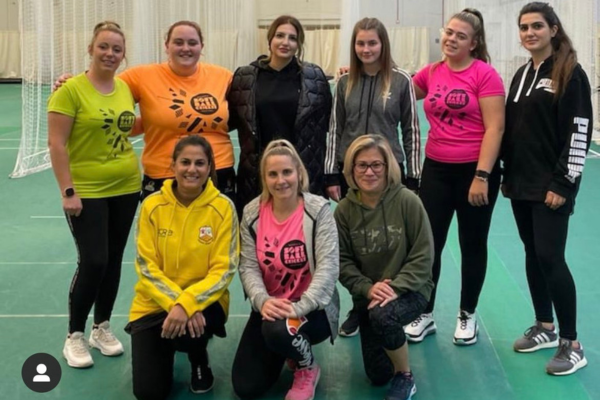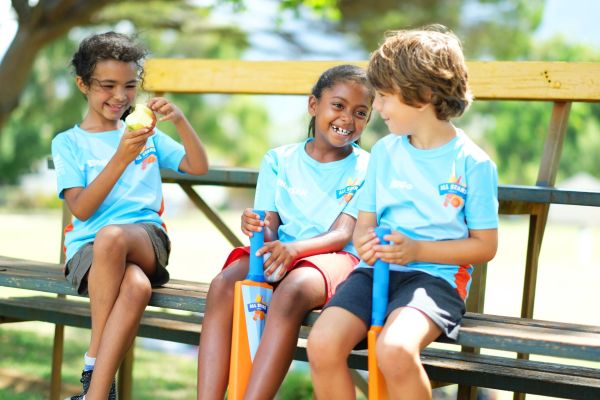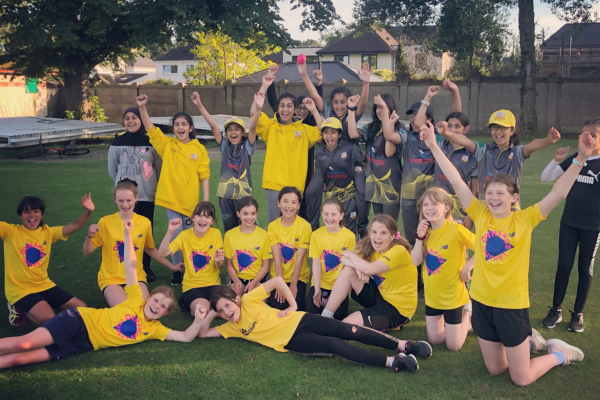Cricket Wales has enjoyed considerable growth over the last few years, and now represents more than 200 clubs serving nearly 25,000 participants. ConnectSport’s Jon Harland spoke to Partnerships Manager Mark Frost and discussed Cricket Wales’ strategy for the next five years.
From street cricket to Test matches, cricket is a sport which can be accessible to people of all ages and abilities, providing a platform for lifelong participation.
For Mark Frost, the former Glamorgan County Cricket Club player who is now Partnerships Manager at Cricket Wales and Community Manager at Glamorgan Cricket, these qualities make the sport a powerful vehicle for promoting equality, diversity and inclusion (EDI).
COMMUNITIES
“Cricket has a natural way of bringing people together,” he says. “It’s a sport that bridges divides, offering opportunities to socialise, build friendships, and create a sense of belonging both on and off the field.”
Mark explains that the mission of Cricket Wales, the national governing body for cricket in Wales, is to ensure it is sport where everyone feels respected and included. Recognised by the England and Wales Cricket Board (ECB), Sport Wales and the Welsh Government, the governing body is dedicated to preserving the game’s role as a force for good in communities by making it accessible for everyone, increasing participation and building an environment that reflects the communities it serves.
Representing over 200 clubs and serving nearly 25,000 participants, it unites cricket organisations nationwide to promote the sport's positive trajectory and accessibility. Assessing the data and taking on feedback from clubs, Cricket Wales is now looking to expand even further and improve operations. It is also aiming to establish itself as a Foundation during 2025.

Mark’s vision of embedding EDI principles across all aspects of Cricket Wales’ and Glamorgan Cricket’s operations is echoed in initiatives like the Sophia Gardens’ Stadium Transformation Project, which seeks to drive diversity and represent modern society. “We want everyone to see someone who looks like them when they visit,” he adds.
One example is adapting infrastructure. Mark explains: "We’ve made several changes, particularly for South Asian and Muslim communities, focusing on establishing no- and low-alcohol areas, offering inclusive food options, and providing prayer rooms during matches."
Over 20% of players come from ethnic minority backgrounds across Wales, so it’s important for Mark that everyone feels welcome. Wear Red Day, a campaign by Show Racism The Red Card, promotes anti-racism through individuals wearing red. Cricket Wales supported this initiative in 2024 by providing staff with anti-racism training and raising awareness, demonstrating their commitment to fostering an inclusive culture.
DIVERSE
Paul Crane, Vice-Chairman of Ynystawe Cricket Club, shares a memorable story in an episode of Cricket Conversations with Jason Mohammad, a three-part podcast series with Cricket Wales. He recalls two 18-year-old Afghan refugees who joined a session run by a local Indian community in the nets one Saturday morning.
“They were really nervous, they were shaking,” says Paul. “But the minute a cricket ball was in their hands, you would not have recognised them.”
This is just one of many stories underlining cricket’s ability to unite diverse cultures and backgrounds, reinforcing the significance of Cricket Wales’ mission to inspire greater nationwide participation.
Increasing gender equality is also a key aim. Mark says: “The women's game has absolutely rocketed over the last eight years. We’re currently writing our new strategy for the next 10 years, and women and girls are front and centre.”
The percentage of cricket clubs with a women's team has grown from seven per cent to over 50% since 2018, and clubs with a girls’ team have increased from nine per cent to 32%. Mark has ambitions for a female offer in every cricket club in the country.
“We’ve put a lot of investment into this area,” he says. “It started with the social version - softball cricket - getting women to play the game. That created a virtuous circle of whole families coming to the club, not just the dads, which grew the girls' sections and got mums involved in running them too.
SUCCESSFUL
“We’ve seen growth in social softball, then competitive softball, and finally transitioning into hardball cricket.”
Clubs that operate both a girls’ and a women’s team have seen a 36% increase. At the same time the secondary school festival programme has been hugely successful, engaging nearly 3,000 girls.
This demonstrates the impressive growth of female participation in the sport, but this creates its own complications moving forward, which Cricket Wales will address in their new strategy.

“This growth creates challenges, such as cross-demands for facilities, where players want to use the same spaces at the same times,” says Mark.
“Facility provision is a significant focus area. We’ve been working on this alongside the feedback that the game has grown significantly."
Cricket Wales currently has a programme in 40% of primary schools in the country and would like to increase this figure. One of the offers is the chance for young people to attend live Blast T20 matches at Glamorgan County Cricket Club.
ENGAGEMENT
“Engagement with children is key,” says Mark. “We’re offering opportunities for schools from deprived and diverse backgrounds to experience that big-match environment, so we make one or two bigger games available for all schools to come along.
“For many, this isn’t just their first cricket game but their first visit to a professional stadium.”
All Stars and Dynamos clubs are ECB initiatives launched for young children to make cricket fun and engaging while teaching fundamental skills. These initiatives have transformed many clubs in Wales, contributing to a 58% growth of juniors and a record number of girls’ sign-ups in 2024.

While the figures are encouraging - such as under-nine teams up 45% since 2022 and under-11 teams increasing by 37% since 2021 – Cricket Wales are aiming to create even more club age-group teams so that children can learn to play and then stay in the game.
Cricket Wales also partners with Chance to Shine, an independent cricket charity, to deliver cricket sessions in more than 350 schools. Serving disadvantaged communities is a key focus for the governing body and Street Cricket, a programme supported by Chance to Shine, engages young people in under-served areas. Mark comments: “While a lot of our efforts have focused on mainstream cricket, we’re also reimagining the game for diverse and deprived communities.” Initiatives like Street Cricket “hold huge potential for future growth”, says Mark.
Cricket Wales operates three Super 1s hubs in partnership with the Lord’s Taverners charity. The hubs provide people with physical or learning disabilities opportunities in cricket, both competitive and coaching. They aim to use cricket as a tool for change, increasing confidence, communication and leadership among participants while establishing cricket performance pathways.
HEALTH
“Cricket has helped me cope with coming to terms with my disability,” says Melissa Fletcher of Carmarthen Wanderers. “Having the women’s and girls’ cricket pathway has really created new opportunities for me to be able to be part of a team even with a disability. It really has helped my mental health to be able to play a sport and be part of a team, regardless of my disability.”
The Disability Performance Squad at Cricket Wales had a record 17 members in 2024. This opens doors for people from all walks of life and provides players with the opportunity to represent their country.
The hubs also oversee disability initiatives such as Table Cricket, Champion clubs, and the disability pathway, contributing to the disability strategy with the ECB and Lord’s Taverners.

A dedicated EDI sub-committee ensures alignment with ECB standards. Mark highlights the importance of diversity within these groups because, after all, “these are the individuals who drive cultural change and set the tone for inclusivity within cricket”.
Partnering with Cricket Wales significantly benefits cricket organisations. Collaboration creates purpose and social value, contributes to corporate social responsibility goals, and connects with new, diverse audiences across Wales. All these points demonstrate cricket’s positive impact on society.









